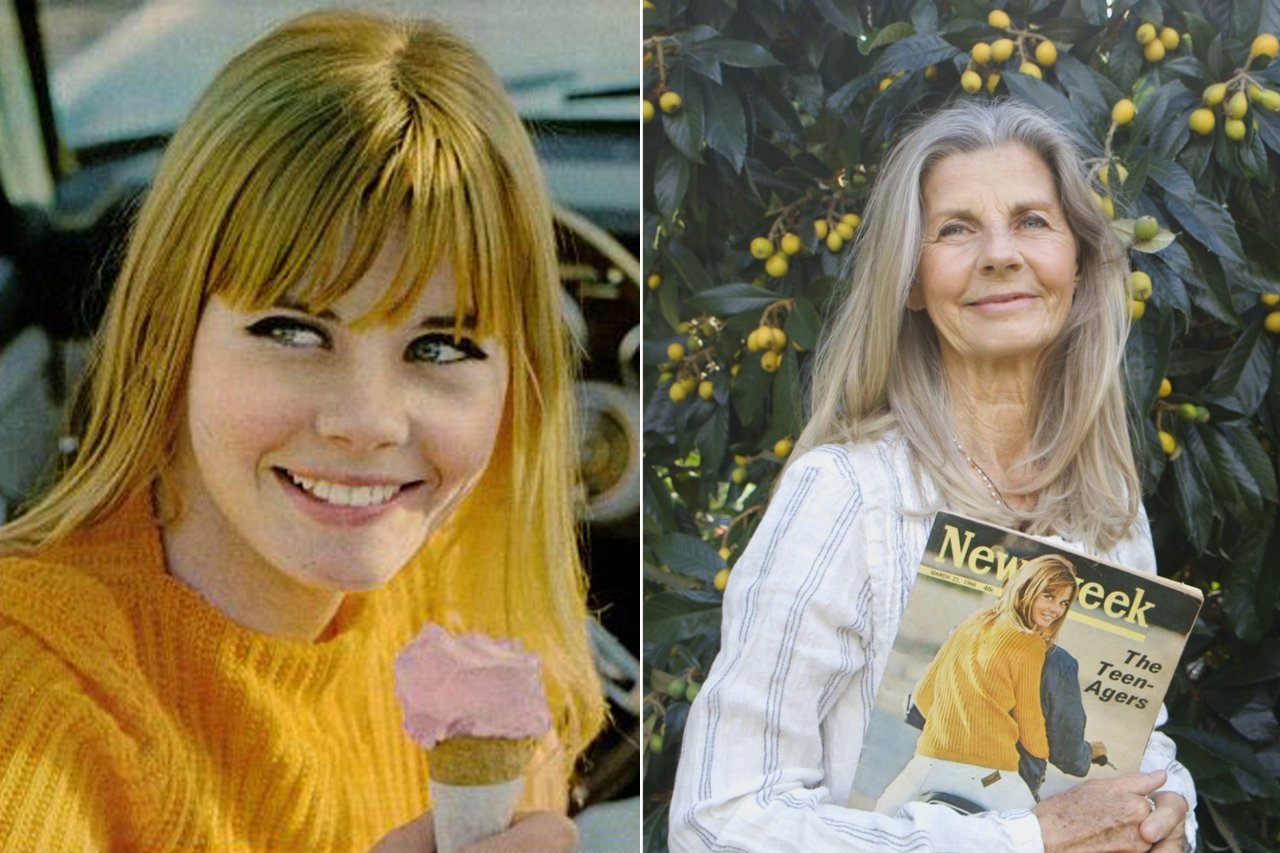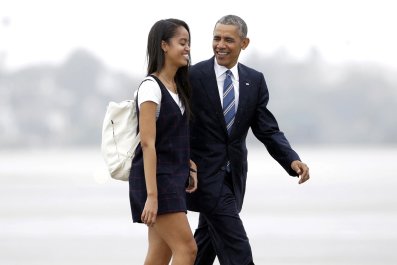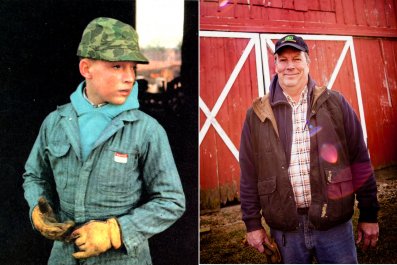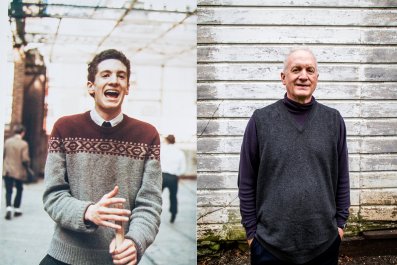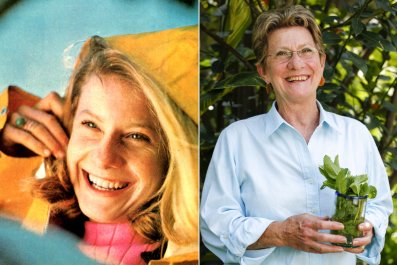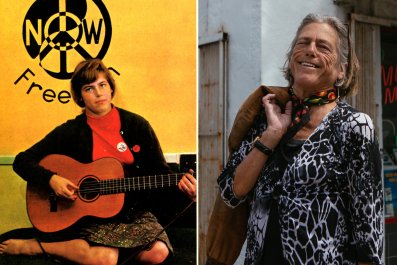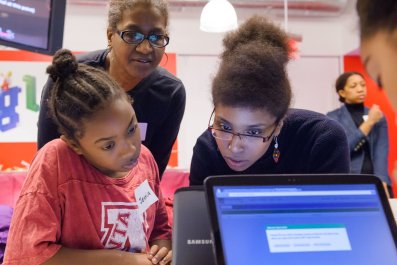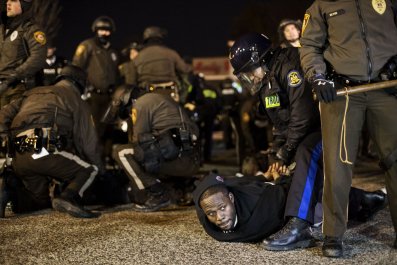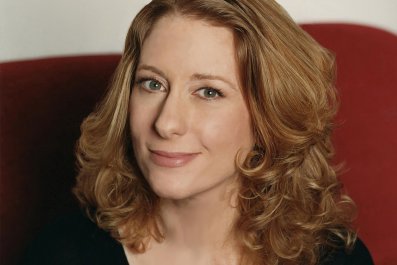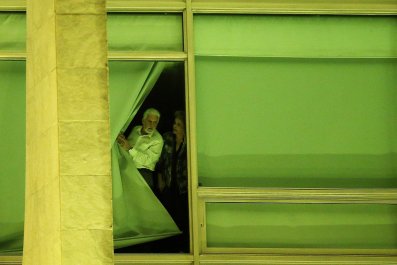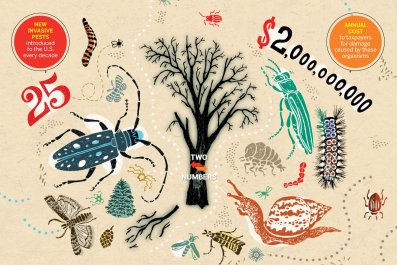In 1966, Newsweek published a landmark cover story, "The Teen-Agers: A Newsweek Survey of What They're Really Like," investigating everything from politics and pop culture to teens' views on their parents, their future and the world. The article was based on an extensive survey of nearly 800 teens across the country, and it also profiled six teens in depth, including a black teen growing up in Chicago, a Malibu girl, and a farm boy in Iowa. Fifty years later, Newsweek set out to discover what's changed and what's stayed the same for American teens. The result, "The State of the American Teenager," offers fascinating and sometimes disturbing insights into a generation that's plugged in, politically aware, and optimistic about their futures, yet anxious about their country.
It took the assistance of half a dozen people and months of dead ends to track down Jan Smithers, by far the most famous of the six teenagers Newsweek profiled in 1966. After appearing on the cover of Newsweek's teen issue—blond, sun-kissed, seated on a motorcycle and flashing a killer smile—Smithers received calls from "many, many" Hollywood agents hoping to represent her. Today, she's most known for playing Bailey Quarters in WKRP in Cincinnati, which aired from 1978 to 1982. She was also married to actor James Brolin for nine years.
Today, however, she lives in Southern California and avoids the spotlight. (Her most recent IMDb entry, for Mr. Nice Guy, is from 1987.) "People don't even know I'm an actor! If I ever let them know, they're so surprised," she says. "I'm very private about my personal life." Asked if her life unfolded how she imagined it would, she bursts out laughing. "No! Because of Newsweek magazine, I didn't have a chance to imagine how it would come out!"
Before Newsweek, Smithers was just a 16-year-old Valley girl. She grew up in a modest middle-class family in Los Angeles. Her father was a lawyer, her mother a homemaker, and she had three sisters, though the eldest died in a car accident at 21. Smithers was shy, liked art and was lukewarm on school. "Sometimes, when I'm sitting in my room, I just feel like screaming and pounding my pillow," she told Newsweek. "I'm so confused about this whole world and everything that's happening."
She attended Taft High School, and one day a guy she knew asked her to go surfing with him. "I thought, No, I couldn't! I can't play hookie!" But he talked her into it. The beach was empty, and Smithers remembers sitting on the sand watching him surf, wondering what her mother would say when she got home. Suddenly, she spotted two men dressed in black walking toward her. "They looked like little pencils walking down the beach. One had long hair and cameras around his neck. They walked right up to me and said, 'We're doing an article on teens across the country, and we're looking for a girl from California. We're wondering if you'd be interested in doing the article.'"
Smithers said yes. After the article came out, her mother took her to meet agents in Hollywood. "I remember sleeping in the car with her. She was looking for someone who communicated like a person." Smithers did commercials while finishing her last two years of high school.
She was accepted to Chouinard Art Institute, now the California Institute of the Arts, but quit after a couple of years to pursue acting full time. It paid off. In her early 20s, she landed a role in the 1974 film Where the Lilies Bloom, about a family of children living in the Appalachian Mountains. Four years later, she got her big break on the Friday night sitcom WKRP in Cincinnati. She calls her success "destiny" but also sees it as dumb luck: "Honest to God, I don't know how it happened!"
Smithers met her former husband, Brolin, on the set of Hotel, an '80s prime-time drama from Aaron Spelling. "I had been in WKRP, a situation comedy, which is a fast-paced dialogue between people," Smithers says. "When I did Hotel, we were about to do our scene, and James asked me if I was scared. I was sure of my lines, and I said no, I wasn't. I realized that he might be scared! And I realized he was a very sincere person. I don't know if he remembers that or not, but our relationship developed on sincerity."
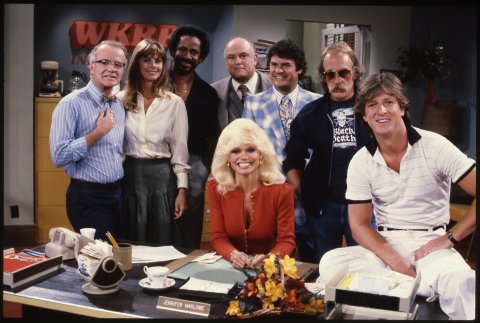
They married in 1986 and have one daughter, Molly, who's 28. When Smithers first learned she was pregnant, she planned to take six months off before returning to work. "I loved having a career, but when I met Molly, I just looked at her and told her, 'You need me.' And she looked at me so innocently. I thought, I have to stay! She changed my life. I really longed to be her mom."
After nine years of marriage, Smithers and Brolin divorced. "It was good—really good—but somehow, somewhere, we started to wander," she says. "He traveled a lot for work. We grew apart. He was gone months at a time." Smithers also yearned for a life outside Hollywood. "I had Molly and wanted to be in the country and get away from that world. I just wanted a different life, and we ended up getting divorced."
When Molly reached high school, Smithers traveled to India with a charitable group. She was astonished at the hardships she witnessed there and moved by the people she met. For the first time, it dawned on her: "I could make a difference." She spent the next 16 years going to India. "I learned to meditate there, and I changed a great deal. I got out of myself."
These days, Smithers's life largely revolves around meditation, healing, spirit uality and the environment. She talks about yoga guru Swami Muktananda, Indian spiritual guru Mata Amritanandamayi (known as Amma the Hugging Saint) and Indian environmentalist Vandana Shiva as if they're her family. And she believes that helping people—neighbors and enemies—can heal anyone and any situation, from fights among friends to wars between nations. As she puts it, "the answer to peace in the universe is love." Asked what advice she'd give young people, she exclaims, "Read Autobiography of a Yogi! Get a hug from Amma! Make use of your time here! In my life, I found these things because I looked for them. I'm always in a place to receive the next thing. This is the real march, the quiet people's change."
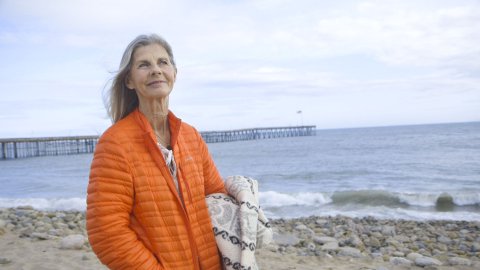
Over the years, Smithers has used her fame to support causes she cares about. "I stood for no nukes. I spoke for solar energy. I was invited to Washington and spoke in a subcommittee. I did a terrible job—it was way over my head—but I did it," she says. "My spiritual teachers always say, stay out of politics. But do you know what the byproduct of nuclear energy is?" she asks, then launches into a 10-minute spiel on plutonium. "I am so anti–nuclear energy."
Smithers is surprised to learn that 82 percent of teens today believe racial discrimination will be a problem for their generation. "People are people; we're all the same," she says. The key to solving discrimination and violence, she thinks, is "peace in your inner world. There's such a commotion about the world, but we can find peace at any given moment. Conflicts are not etched in stone." Yet she worries about how the economy will affect young people. "If this whole generation can't buy a home because they have to pay off their college education, what have we done?"
Recently, I called Smithers to ask her a few follow-up questions. We spoke for nearly an hour, and later that day, she called back and left a message. "I just thought of that whole conversation we had about discrimination," she says with her soft voice in the recording. "I don't really know the answer, but God does. You could write that down."



